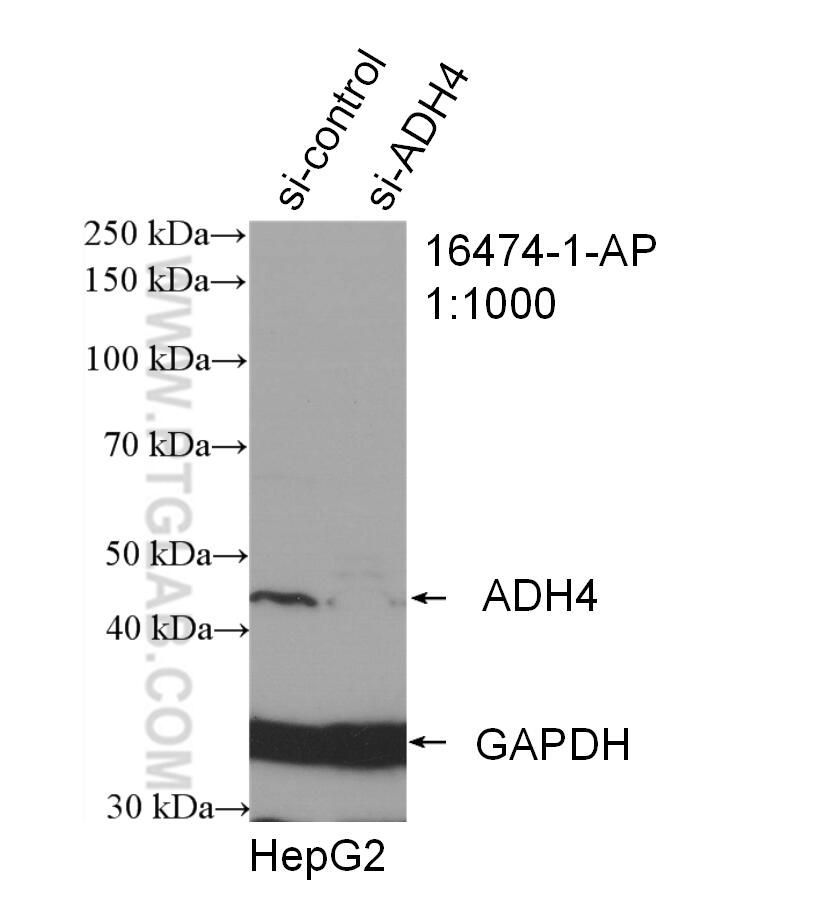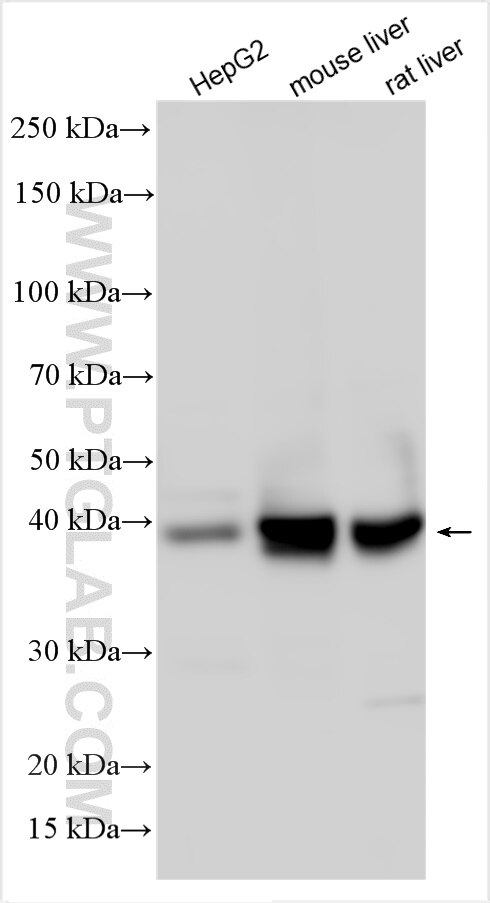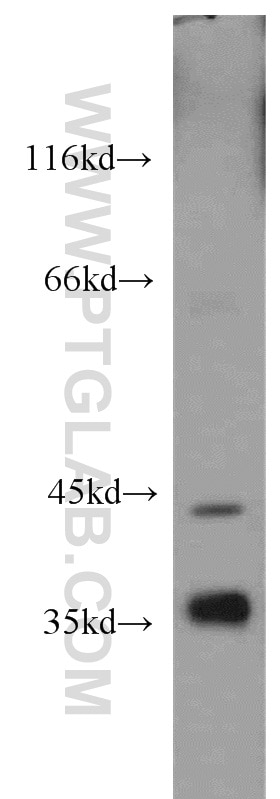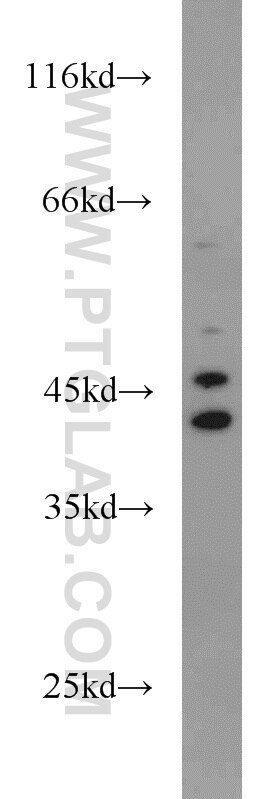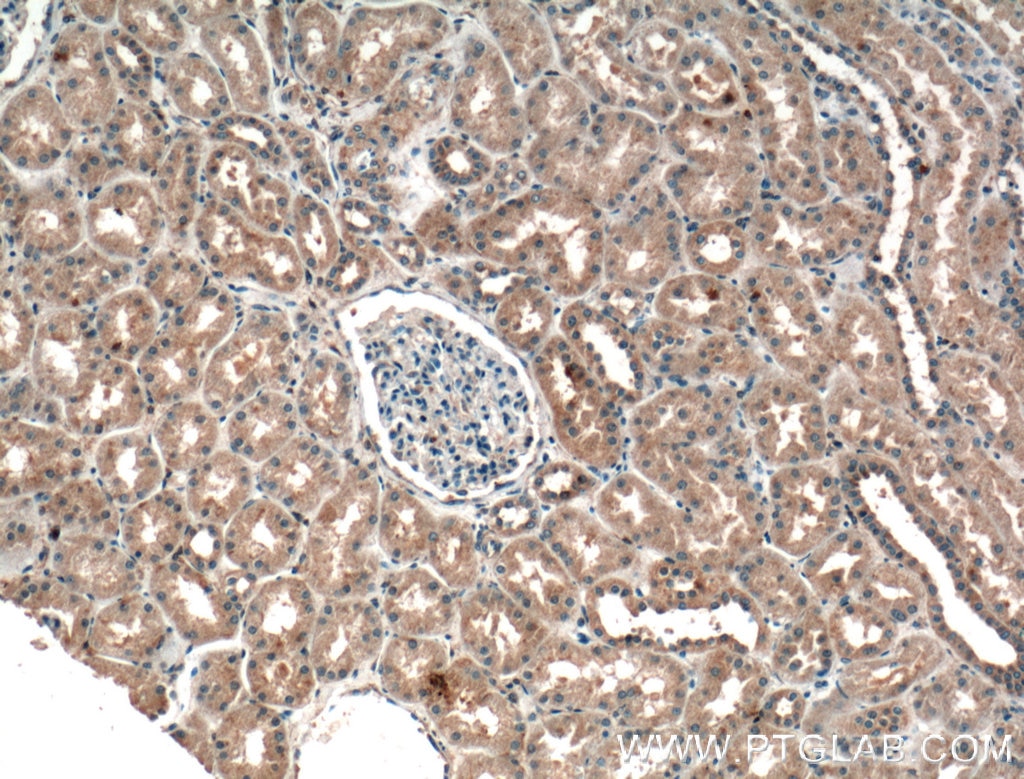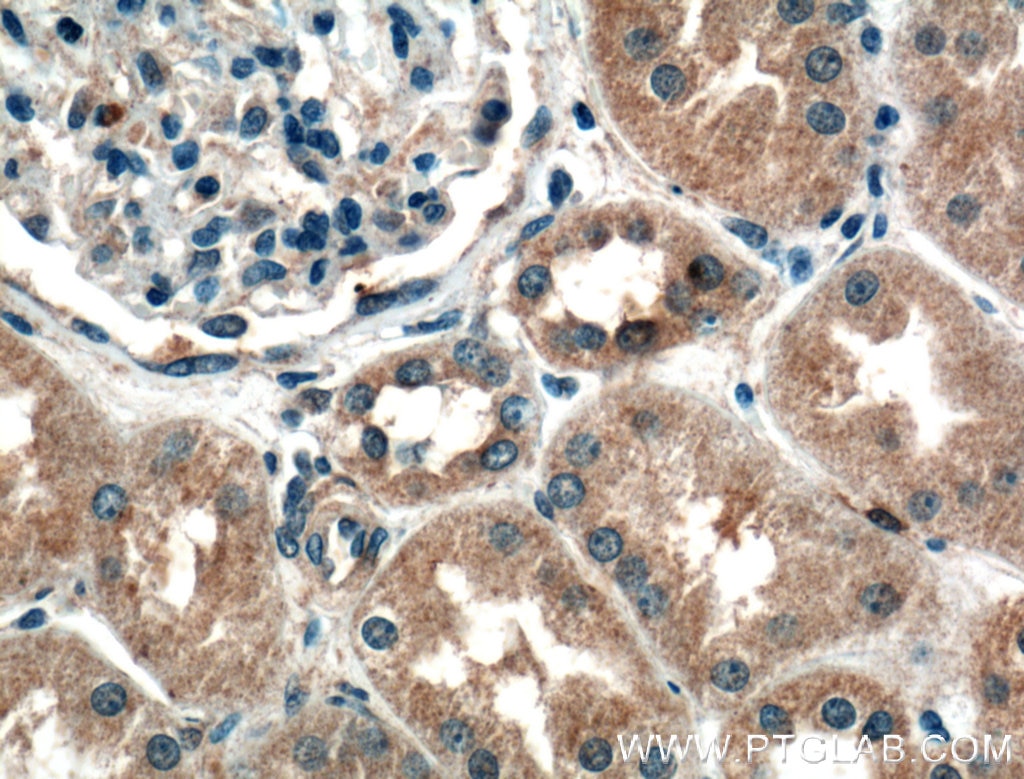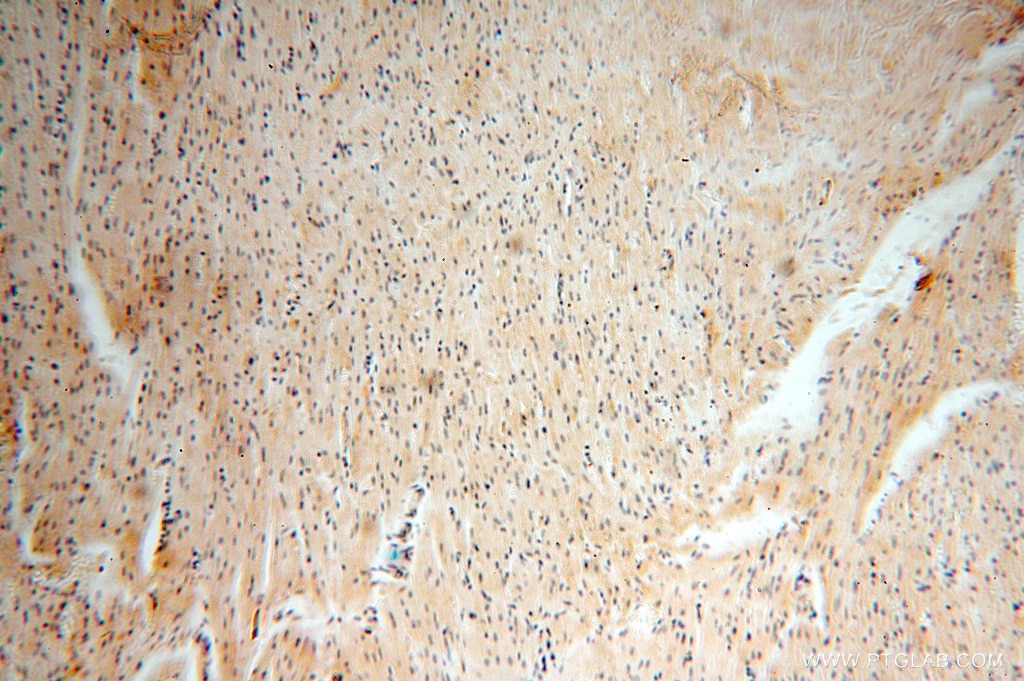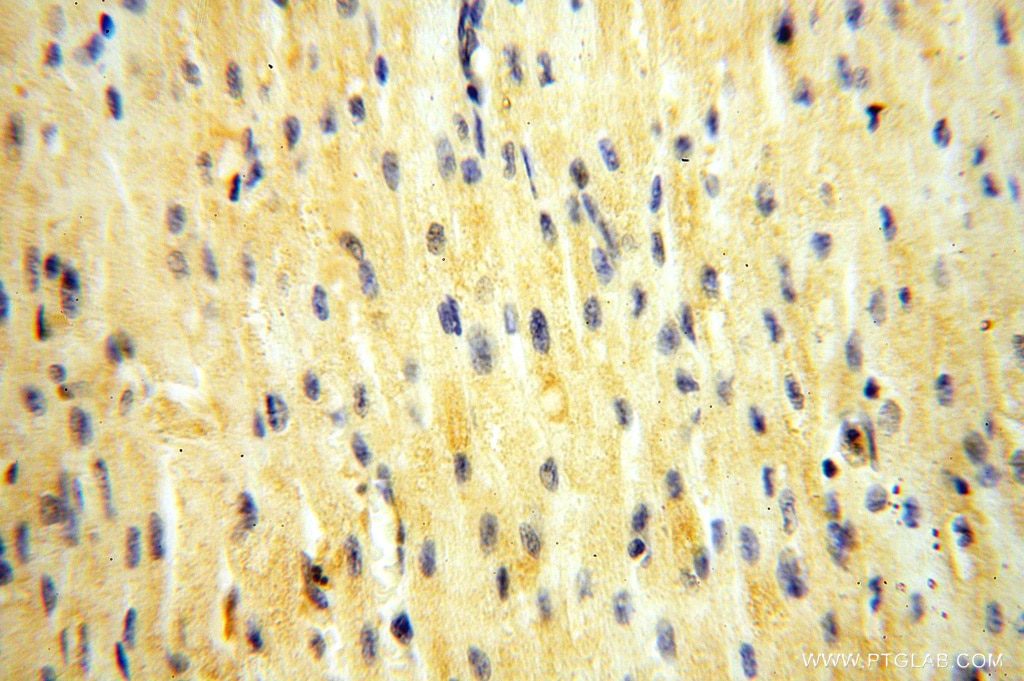- Phare
- Validé par KD/KO
Anticorps Polyclonal de lapin anti-ADH4
ADH4 Polyclonal Antibody for WB, IHC, ELISA
Hôte / Isotype
Lapin / IgG
Réactivité testée
Humain, rat, souris
Applications
WB, IHC, ELISA
Conjugaison
Non conjugué
N° de cat : 16474-1-AP
Synonymes
Galerie de données de validation
Applications testées
| Résultats positifs en WB | cellules HepG2, cellules HeLa, tissu cérébral de souris, tissu hépatique de rat, tissu hépatique de souris |
| Résultats positifs en IHC | tissu rénal humain, tissu cardiaque humain il est suggéré de démasquer l'antigène avec un tampon de TE buffer pH 9.0; (*) À défaut, 'le démasquage de l'antigène peut être 'effectué avec un tampon citrate pH 6,0. |
Dilution recommandée
| Application | Dilution |
|---|---|
| Western Blot (WB) | WB : 1:500-1:2000 |
| Immunohistochimie (IHC) | IHC : 1:50-1:500 |
| It is recommended that this reagent should be titrated in each testing system to obtain optimal results. | |
| Sample-dependent, check data in validation data gallery | |
Applications publiées
| WB | See 1 publications below |
| IHC | See 3 publications below |
Informations sur le produit
16474-1-AP cible ADH4 dans les applications de WB, IHC, ELISA et montre une réactivité avec des échantillons Humain, rat, souris
| Réactivité | Humain, rat, souris |
| Réactivité citée | Humain |
| Hôte / Isotype | Lapin / IgG |
| Clonalité | Polyclonal |
| Type | Anticorps |
| Immunogène | ADH4 Protéine recombinante Ag9568 |
| Nom complet | alcohol dehydrogenase 4 (class II), pi polypeptide |
| Masse moléculaire calculée | 380 aa, 40 kDa |
| Poids moléculaire observé | 43 kDa |
| Numéro d’acquisition GenBank | BC022319 |
| Symbole du gène | ADH4 |
| Identification du gène (NCBI) | 127 |
| Conjugaison | Non conjugué |
| Forme | Liquide |
| Méthode de purification | Purification par affinité contre l'antigène |
| Tampon de stockage | PBS with 0.02% sodium azide and 50% glycerol |
| Conditions de stockage | Stocker à -20°C. Stable pendant un an après l'expédition. L'aliquotage n'est pas nécessaire pour le stockage à -20oC Les 20ul contiennent 0,1% de BSA. |
Informations générales
This gene encodes the class II alcohol dehydrogenase 4 pi subunit, which is a member of the alcohol dehydrogenase family. Members of this enzyme family metabolize a wide variety of substrates, including ethanol, retinol, other aliphatic alcohols, hydroxysteroids, and lipid peroxidation products. Class II alcohol dehydrogenase is a homodimer composed of 2 pi subunits. ADH4 plays a critical role in alcoholism development and alcohol toxicology and is also associated with the development of esophageal cancer(PMID:33556337, 26039424, 24051444, 22147505).
Protocole
| Product Specific Protocols | |
|---|---|
| WB protocol for ADH4 antibody 16474-1-AP | Download protocol |
| IHC protocol for ADH4 antibody 16474-1-AP | Download protocol |
| Standard Protocols | |
|---|---|
| Click here to view our Standard Protocols |
Publications
| Species | Application | Title |
|---|---|---|
Front Immunol Identification and validation of a tyrosine metabolism-related prognostic prediction model and characterization of the tumor microenvironment infiltration in hepatocellular carcinoma | ||
Front Oncol Novel Prognostic Signatures of Hepatocellular Carcinoma Based on Metabolic Pathway Phenotypes. | ||
Drug Metab Dispos Characterization of human alcohol dehydrogenase 4 and aldehyde dehydrogenase 2 as enzymes involved in the formation of 5-carboxylpirfenidone, a major metabolite of pirfenidone | ||
iScience Crosstalk of non-apoptotic RCD panel in hepatocellular carcinoma reveals the prognostic and therapeutic optimization | ||
BMC Cancer ADH4-a potential prognostic marker for hepatocellular carcinoma with possible immune-related implications |
